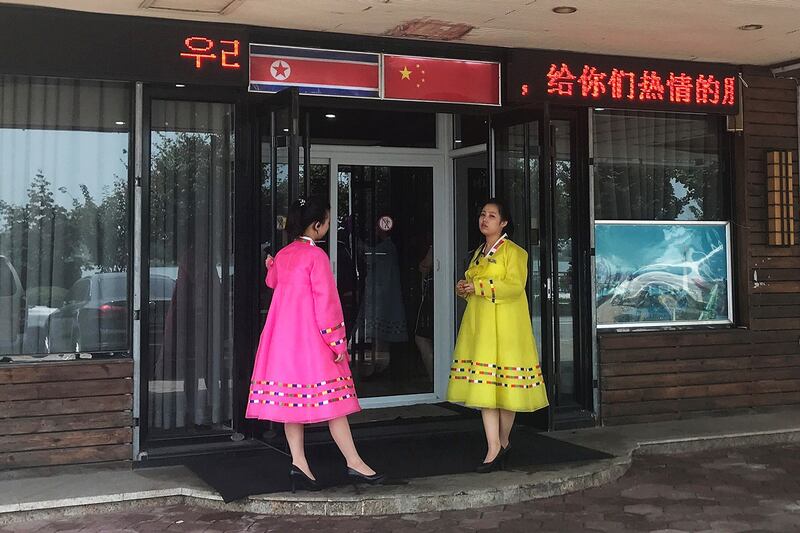North Korea has ordered the return of workers who were dispatched to China to earn money for the regime, a document obtained by Radio Free Asia shows.
Experts told RFA that the order is intended to bring back women in their 30s who missed out on getting married because they were stuck in China during the pandemic. The typical age in North Korea for women to be married is around 26, according to the South Korea-based media outlet Daily NK, which cited a study by the South Korean Ministry of Unification.
The orders, which are believed to have been issued in May and June, were sent out to embassies and consulates in China. The repatriation should be “thoroughly executed without any conditions or excuses,” the announcement states.
The women now being called home likely put off marriage to accept their overseas assignments, which are a crucial economic resource for the country that is under heavy international economic sanctions. These jobs typically last only a year or two, but those sent prior to the pandemic have now been abroad for more than four years.

J.M. Missionary Union, a South Korean organization that executes rescue missions for North Korean escapees in China, said many of the women likely work in North Korea-themed restaurants.
Related RFA Content
[ ‘I want to be myself, not someone’s mom.’Opens in new window ]
[ Cry me a babyOpens in new window ]
[ Coronavirus Strands North Korean Workers in China, Kills Job OffersOpens in new window ]
[ North Korea brings home around 700 of its workers from China and RussiaOpens in new window ]
These restaurants are often staffed by women who in addition to serving food pull double duty as singers and dancers to entertain diners.
The repatriation effort is part of the country’s plans to encourage more marriages to counter the country’s declining birthrate, Cho Han Bum, a researcher at the South Korea-based Korea Institute for National Unification, told RFA Korean.
“There is a problem raised within North Korea that female workers dispatched overseas missed their marriageable age,” Cho said. “This is why Kim Jong Un attended the FifthNational Meeting of Mothers at the end of last year.”
At that meeting, Kim Jong Un was brought to tears as he pleaded with North Korea’s women to have more children.
South Korea's Dong-A Ilbo newspaper reported this week that the Chinese government had requested all North Korean workers return home, suggesting it was designed to show Beijing's unhappiness at Pyongyang's effort to forge closer ties with Russia.
However, the Chinese Ministry of Foreign Affairs denied it had made the request.
“China and North Korea are neighbors connected by mountains and water and have always maintained traditional friendly and cooperative relations,” Chinese Foreign Ministry spokesperson Lin Jian said at a news conference.
He equated reports of a deterioration of Sino-North Korean relations as a fiction. “I hope they don’t write news like it is a novel,” Lin said.
Seo Jae-pyoung, head of the Seoul-based Association of the North Korean Defectors, told RFA, that China does not want to be seen as openly violating U.N. sanctions barring North Koreans from working abroad, because penalties for doing so could damage its own poor economy.
North Korea’s desire to swap some of its older workers with younger replacements could draw unwanted attention to the practice, he said.
“China is in the position that all North Korean workers should leave first,” he said. “So, it appears that a ‘battle of wits’ is going on between them.”
Translated by Claire S. Lee and Leejin J. Chung. Edited by Eugene Whong and Jim Snyder.

